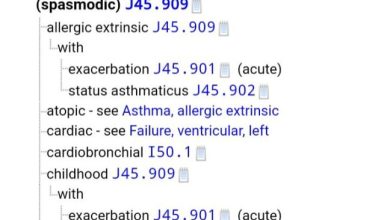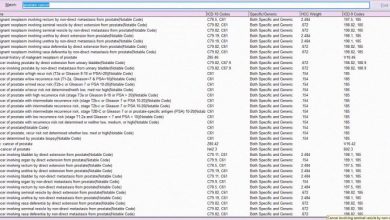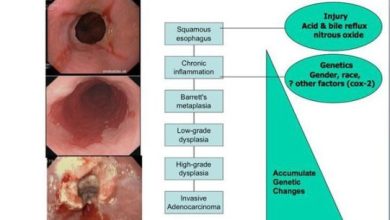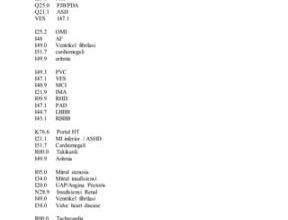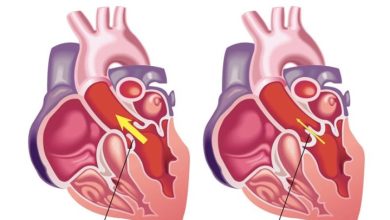Impact Of ICD-10 Coding For Excessive Daytime Sleepiness
What is Excessive Daytime Sleepiness?
Excessive daytime sleepiness (EDS) is a condition characterized by persistent sleepiness during the day, even after getting enough sleep at night. It can significantly impact a person’s daily activities, productivity, and overall quality of life. EDS is often a symptom of an underlying sleep disorder, such as sleep apnea, narcolepsy, or insomnia.
Code Information
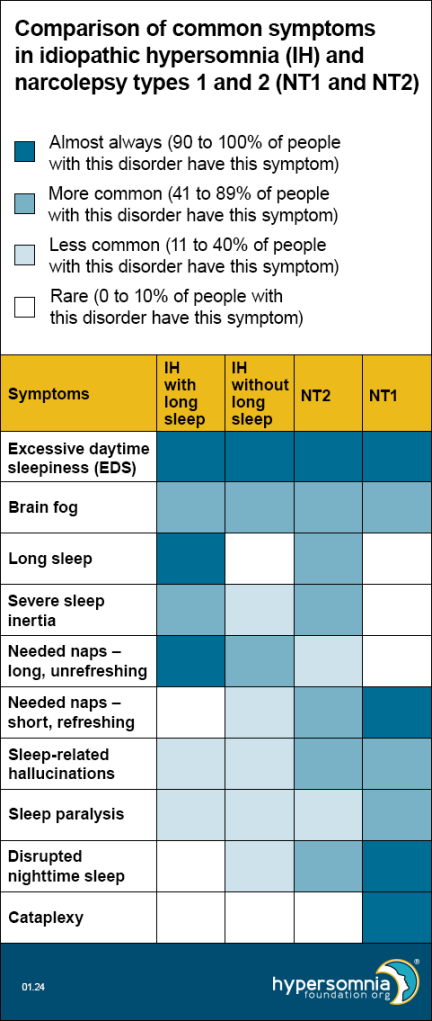
The ICD-10 code for excessive daytime sleepiness is G47.10. This code falls under the broader category of sleep disorders and is used to classify and code medical diagnoses related to EDS.
Diagnostic Related Groups (MS-DRG)
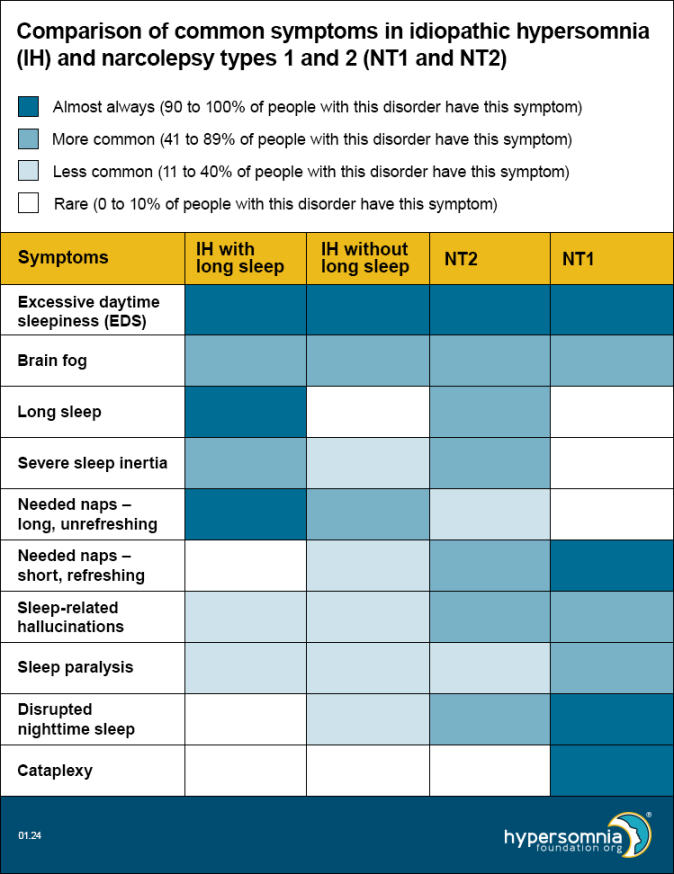
There are no specific MS-DRGs related to excessive daytime sleepiness. However, in cases where EDS is a symptom of another underlying condition, such as narcolepsy or sleep apnea, the MS-DRG would be assigned based on the primary diagnosis.
Convert to ICD-9 Code
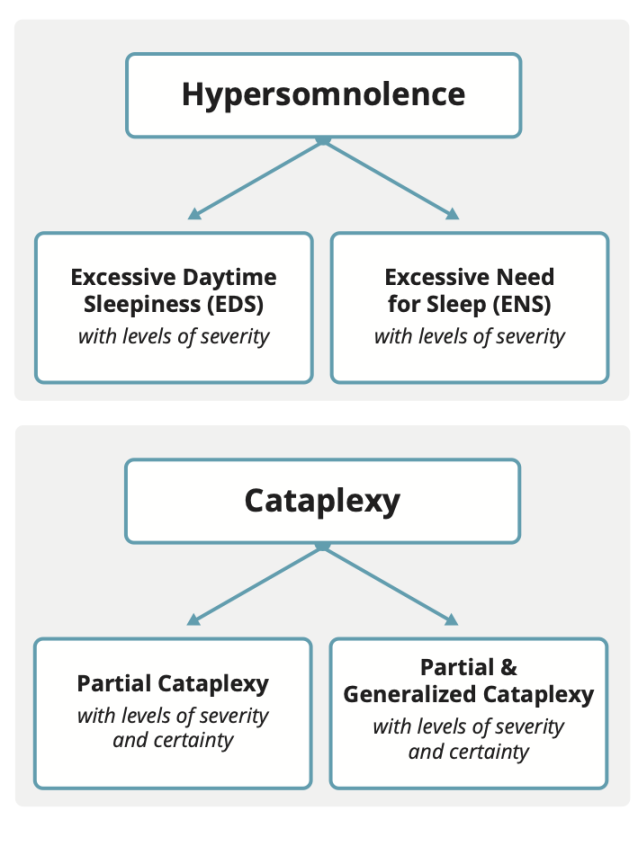
To convert the ICD-10 code G47.10 for excessive daytime sleepiness to an ICD-9 code, you would use the code 780.54. This code corresponds to excessive daytime sleepiness in the ICD-9 coding system.
Code History
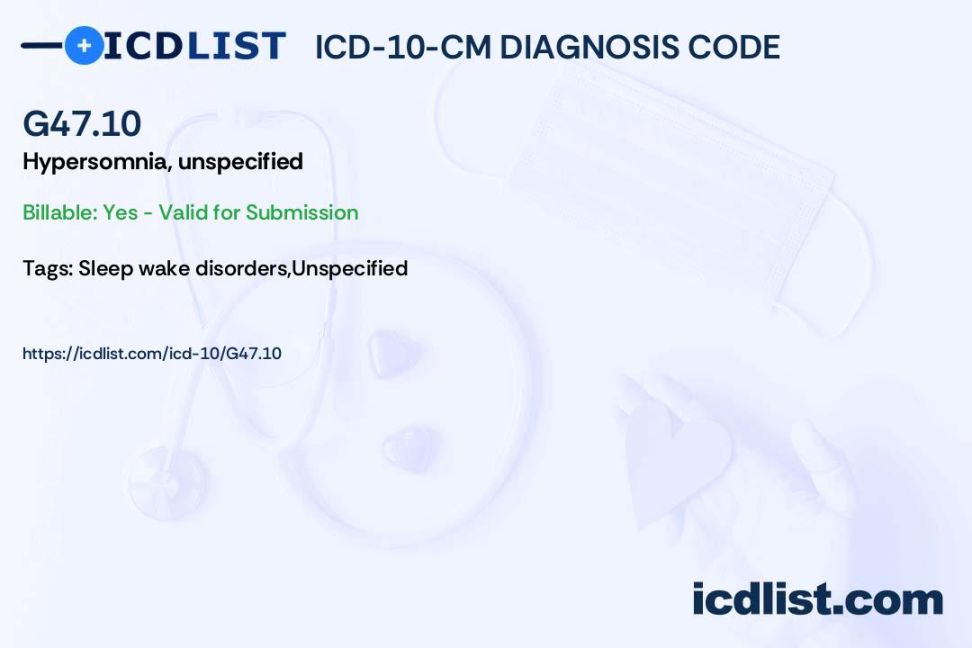
The ICD-10 code for excessive daytime sleepiness was first introduced in 2015 as part of the updated coding system. It replaced the previous ICD-9 code 780.54, which was used to classify the same condition.
Approximate Synonyms
Daytime somnolence
Hypersomnia
Sleepiness
Excessive drowsiness
Clinical Information
Excessive daytime sleepiness can have a significant impact on a person’s daily life, leading to decreased productivity, impaired concentration, and an increased risk of accidents. It is important to properly diagnose and treat EDS to improve overall quality of life and reduce the risk of associated health complications.
Causes
The causes of excessive daytime sleepiness can vary and may be related to underlying sleep disorders, such as obstructive sleep apnea, narcolepsy, or restless legs syndrome. Other potential causes include lifestyle factors, such as poor sleep hygiene, stress, or certain medications.
Symptoms
Common symptoms of excessive daytime sleepiness include persistent drowsiness during the day, difficulty concentrating, memory problems, irritability, and a lack of energy. Individuals with EDS may also experience frequent naps or microsleep episodes.
Diagnosis
Diagnosing excessive daytime sleepiness typically involves a detailed medical history, physical examination, and possibly a sleep study to evaluate sleep patterns and rule out underlying sleep disorders. Blood tests and other diagnostic tests may also be performed to identify any potential underlying causes.
Treatment
Treatment for excessive daytime sleepiness depends on the underlying cause and may include lifestyle modifications, such as improving sleep hygiene, incorporating regular exercise, and managing stress. In cases where EDS is a symptom of a sleep disorder, specific treatments, such as continuous positive airway pressure (CPAP) therapy for sleep apnea or medications for narcolepsy, may be recommended.
Conclusion
Excessive daytime sleepiness is a common symptom that can significantly impact a person’s daily life and overall well-being. Proper diagnosis and treatment are essential to improve quality of life and reduce the risk of associated health complications. If you are experiencing persistent daytime sleepiness, it is important to consult with a healthcare provider for a comprehensive evaluation and appropriate management.
FAQs
1. What are the common causes of excessive daytime sleepiness?
Common causes of excessive daytime sleepiness include underlying sleep disorders, lifestyle factors, and certain medications. It is important to identify the specific cause to determine the most effective treatment.
2. How is excessive daytime sleepiness diagnosed?
Diagnosing excessive daytime sleepiness typically involves a thorough medical history, physical examination, and possibly a sleep study to evaluate sleep patterns and rule out underlying sleep disorders.
3. What are the potential complications of untreated excessive daytime sleepiness?
Untreated excessive daytime sleepiness can lead to decreased productivity, impaired concentration, an increased risk of accidents, and a negative impact on




